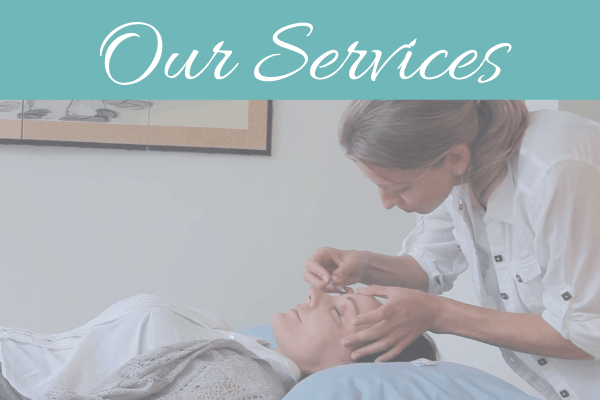Integrative Treatment of Seasonal Affective Disorder (S.A.D)
My first questions is – are we so very sure it’s a “disorder”? I mean, feeling disordered is not the same as having A DISORDER, wouldn’t you agree?
Before pursuing studies in integrative medicine and various healing modalities, I was in graduate school studying psychology and psychoanalysis. EVERYTHING was labeled, diagnosed, and put into a nice little box – as I discovered through my studies, this was done primarily for the purposes of proper insurance coding. That’s right, you guessed it – so that insurance and pharmaceutical companies would get paid.
The reality of the complexity of human beings seldom fits into labels and boxes, however. And though at times it indeed feels validating and structuring to have a framework to account for otherwise nebulous feelings and emotions and behaviors, there is too much lost in what have become “standard” definitions of much more intricate phenomena.
Be clear that I am not aiming to discredit psychiatric labels. I practice integrative inclusivity – there is room for all of it. My discussion is around expanding beyond “diagnosis” and into “discovery” of our truly holistic, complex and emergent nature.
Understand the Nature of Winter
During winter, Yin time, the energy on this planet is naturally flowing inward. Because we all have varying relationships with that place – the inward place in us – we experience this time differently. For instance – I’m an introvert and I was born in the winter – SO I LOVE THIS TIME OF YEAR. An extrovert born in the summer might absolutely loathe it! And they may go into a deep dark depression, or spend the whole season on a Caribbean island or snowboarding in the mountains. Actually, I do quite a bit of that at this time too.
And while there are psychological and energetic differences among us that can inform how we experience Yin time, there are some very real physiological changes that occur – such as the relative diminishment in sunlight, the body’s very real need for more sleep, and increased isolation from each other due to weather events and a rise in illness as the human immune system plummets in the winter months.
The Seasonal Elements According to Chinese Medicine
One important thing to understand is the correspondences of the seasons according to Chinese Medicine. The first is that Autumn is a time of Lung and Large Intestine, which is all about Sadness and Grief and letting go. As we move into winter, just like the trees must shed their leaves, the principle of “letting go” becomes more dominant in our lives.
As anyone who has experienced loss knows, letting go is one of the more difficult things to do. It can feel emotionally and physically painful, and can trigger or amplify feelings of anxiety and depression. Winter is Kidney time, and the corresponding emotion is Fear. Fear is often at the root of anxiety. Although sometimes “anxiety” is actually excitement that we misidentify as fear or something to be avoided.

DID YOU KNOW? The physiological experience of fear and excitement is nearly the same in the human body! Sometimes, we may run from pleasure thinking it is a threat, and other times we may run toward danger thinking it brings rewards. It is important to learn to differentiate – we must integrate the cognitive, emotional, instinctive and somatic realms in the process of discernment.
It’s also important to understand that this shift into colder and darker seasons comes with pressures: end-of-quarter business matters, pressures from community and schools, increased illnesses, pressures of the holidays and associated remnants of difficult holidays from years prior, the physiological stressor of limited light and lowered energy vitality, the pressure on our bodies to metabolize more fats and sugars we are likely to indulge in during this time of year, the list goes on.
How can we help ourselves be in greater alignment and live more fully?

An integrative approach to seasonal affective disorder may look something like this:
1. Understanding is key
- Know that this is a more internal and slower time of year – stop trying to make it something it is not and see if you can discover the gifts of Yin time:
- A time to reflect and correct course if/where needed to set yourself on a better path
- An opportunity to rest more and hang out with a really cool person – you
- A space and time for cultivating your inner world
- A time to reach out to people in your life and foster deeper connections
2. Get more light
- Light therapy is proven effective in dozens of studies – in some randomized controlled trails, full-spectrum light exposure during all times of year has been shown to be more effective than anti-depressant mediations (no surprise) in the treatment of major depression
- Lower levels of sunlight are linked to lower levels of serotonin, a mood-regulating neurotransmitter, particularly in people diagnosed with S.A.D.
- Go outside, sit at the window, and turn your palms to the sun the moment you wake up – spend at least 30 minutes each day in front of full-spectrum light
3. Regulate your Circadian Rhythm
- Seasonal depression is often associated with our internal clocks being out of sync. Circadian Rhythm is a term accounting for how the brain regulates wakefulness and sleepiness by responding to the environment and light stimulus.
- Avoid constantly subjecting your brain to the “midday sun” wavelengths of blue light (which is present in ALL your devices). Instead, support your Circadian Rhythm by wearing orange-tinted “blue blocker glasses” after sundown. The internal sense of alignment with the seasons that this creates for the brain greatly helps the body and mind feel more regulated.
- Avoiding blue light after sundown means the brain naturally begins to produce adequate levels of melatonin, a neuro-protective sleep-related hormone that also plays a role in mood.
4. Avoid sugars, grains and alcohol – eat more healthy fats, seasonal fruits and veggies instead
- Every doctor’s advice, right? Well, ha, there’s a reason for that: Increased sugar intake raises the likelihood of mood disorders.
- The dysregulation of glucose in the brain leading to inflammation, and sugar in the gut leads to disrupted microbial balance and increased intestinal permeability. All of that = mood issues.
- Artificial sweeteners do this as well. Best is to significantly limit intake, and use natural sources of sugar like organic honey or pure maple syrup.
- Healthy fats such as fish oils, nuts and virgin olive oil can ground our energy, treat anxiety, and elevate our mood. Seasonal veggies help in this way also. (see guide for recommendations)
5. Take probiotics
- Ancient medicine has known for years what recent studies continue to show: the positive effects of diverse and balanced microflora on mood.
- It can be hard to know which one is right for you. There are many probiotics on the market, and many in our gut – it’s important not to feed ones that are overgrowing, and equally important to support those that are lacking. A comprehensive gut microbiome analysis is an essential tool in making the right choice. Learn more HERE and LET ME KNOW when you are ready to consider testing. It may be one of the most important tests you ever do for your health.
6. Get nature!
- It only took one generation to forget – exposure to the natural world is increasingly recognized as an indispensable mechanism of health promotion, disease prevention and even disease treatment.
- 30 minutes in nature daily positively affects mood, heart rate, blood pressure, brain activity, cortisol (stress hormone) levels, quality of sleep, quality of life.
- Use of natural “green spaces” is associated with lower rates of mortality, type 2 diabetes, cardiovascular disease, depression and anxiety.

7. Connect with friends
- Isolation and loneliness are ACTUALLY fatal. Reach out. Chances are, they are longing to hear from you, too.
- Physical contact is essential for a human being – hug, cuddle, abundantly
8. Get treatment
- Acupuncture is a phenomenal mood regulator/elevator, it helps us to connect to self/heart. Connect to learn more and book your appointment HERE
- Therapy (various styles) can greatly increase a feeling of connection and bring the benefits of self-insight
- Massage – physical touch and release of pent up tension can mean all the difference



